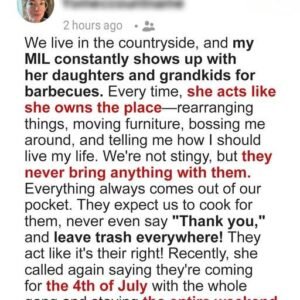Raising children is one of life’s most rewarding but demanding tasks, and contrary to popular belief, parenting doesn’t stop at age 18. In fact, it often becomes more complex as children transition into adulthood.
This period involves guiding them through issues of independence, responsibility, and identity—challenges that can strain even the strongest family relationships.
A recent example involves a single mother and her 21-year-old son, who lived at home while attending community college part-time and working irregularly. Frustrated by not having a car, he delivered an ultimatum: either she buy him a new vehicle, or he would move in with his father,
who had largely been absent from his life. This emotional and financial pressure placed the mother in a tough situation, torn between support and feeling manipulated.
In such cases, experts suggest the first step is establishing clear boundaries.
While emotional support remains important, adult children must understand that financial help—especially major expenses like a car—is not automatic.
Open conversations about expectations and limits can foster a more respectful, realistic dynamic between parent and child.
Another key approach is encouraging accountability.
Rather than simply refusing, the parent could propose a solution such as matching any money the son saves or helping him research financing options.
This teaches that true independence requires effort, not demands, and helps the child build problem-solving skills.
Maintaining emotional connection while holding firm is also essential.
Adult children still need support, but often what they need most is confidence from their parents—not material help.
By listening and guiding, rather than rescuing, a parent can build trust and show belief in their child’s capabilities.
If necessary, family counseling can assist in easing tensions and rebuilding communication.
Ultimately, parenting adult children requires a shift in role—from fixer to mentor.
It’s about guiding them to manage their own lives while still offering love and support.
Sometimes, the most compassionate response isn’t giving in, but saying “no” with care—and remaining present as they learn to stand on their own.





